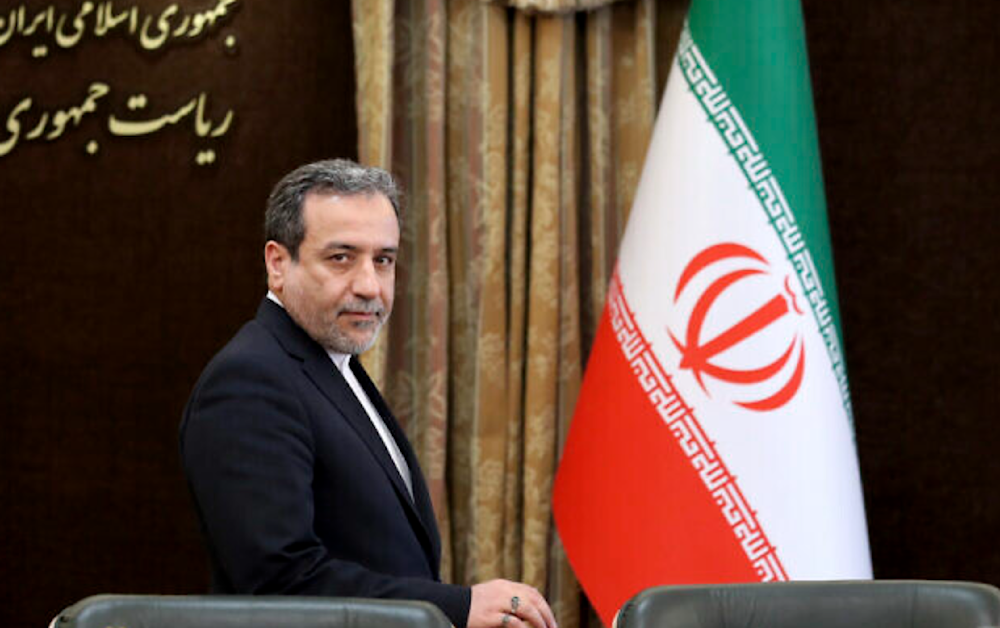Araghchi: US government depriving Iraqis right to electricity
Iranian Foreign Minister Abbas Araghchi condemned the US decision to block Iraq's electricity imports from Iran, warning it would harm civilians.
-

Iranian Foreign Minister Abbas Araghchi attends a press briefing in Tehran, Iran, Sunday, July 7, 2019. (AP)
Iranian Foreign Minister Abbas Araghchi condemned the US government's decision to "target the innocent Iraqi people by depriving them of basic services such as electricity, especially as the hot months of next year approach."
"We stand with the Iraqi people, and we affirm our commitment to our pledge to the Iraqi government to cooperate in confronting the illegal measures taken by the United States," Araghchi said in a post on X.
Iraq currently lacks immediate alternatives to replace the energy imported from Iran, a shortfall that will pose a major challenge in meeting domestic electricity demand, particularly during the summer months, Reuters reported, citing three energy officials.
Earlier on Sunday, a US official confirmed that Washington has opted not to renew a waiver that allowed Iraq to purchase electricity from Iran without violating sanctions.
"Government has started to implement urgent measures to reduce the impact of the U.S. decision on Iraq power supply," one senior electricity ministry official told Reuters.
The waiver, which expired on Saturday, was not extended by the US Department of State, according to a statement from the US embassy in Baghdad.
This decision is part of President Donald Trump's "maximum pressure campaign" on Iran, aimed at halting "Iran’s nuclear threat, curtail its ballistic missile program and stop it from supporting terrorist groups,” the embassy indicated.
The statement urged Iraq "to eliminate its dependence on Iranian sources of energy as soon as possible."
Iraq, despite its substantial oil and gas reserves, has faced persistent electricity shortages due to years of war, corruption, and mismanagement. The country has become heavily dependent on Iranian electricity and natural gas imports to meet its energy needs.
The waiver that expired applied to direct electricity imports, but it remains unclear whether Iraq will be permitted to continue importing gas from Iran to power its plants.
While the US embassy stated that electricity imports from Iran accounted for just 4% of Iraq's total consumption, Iraq’s Ministry of Electricity spokesperson, Ahmad Moussa, warned that banning gas imports could result in the loss of more than 30% of Iraq's electricity supply, adding that the government is actively seeking alternative energy sources.
Moussa noted that for the past two months, Iranian gas had not been supplied to power plants in Baghdad and the central Euphrates region, while supply to southern power plants had been unstable.
A senior official at the Ministry of Electricity, speaking on the condition of anonymity, indicated that the ministry had yet to receive official notification regarding the US decision on gas imports.
The official asserted that Iraq could lose up to 8,000 megawatts from power stations running on Iranian gas, as well as an additional 500 megawatts of electricity directly supplied by Iran.
Iraq has set aside 7.5 billion euros in a bank account for payment to Iran for gas, of which approximately 6.5 billion euros have been paid since the start of the year. However, these funds can only be used for specific purposes, such as purchasing food, medicine, and other humanitarian goods.

 3 Min Read
3 Min Read








